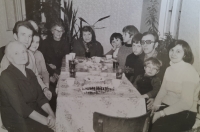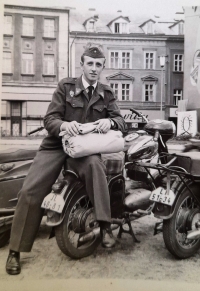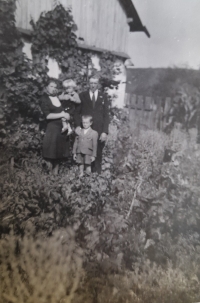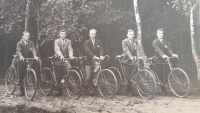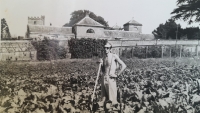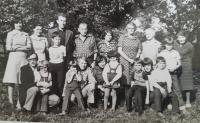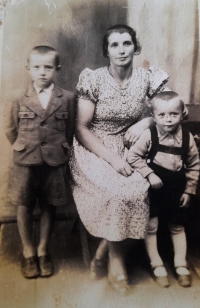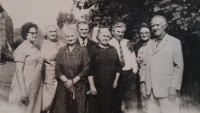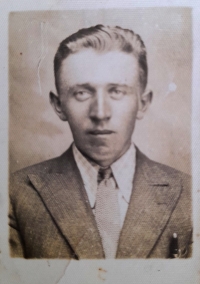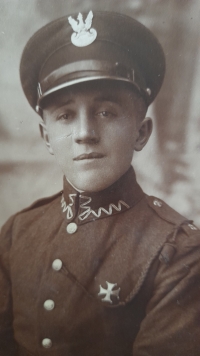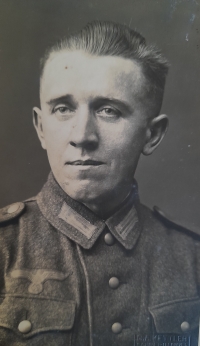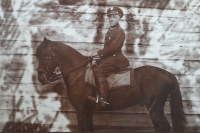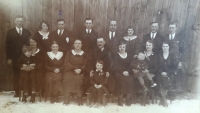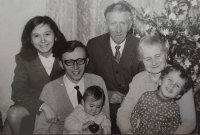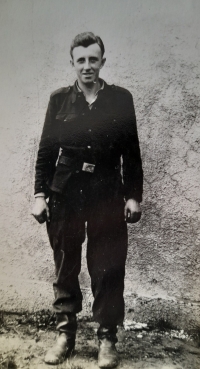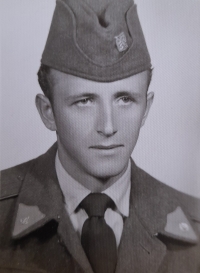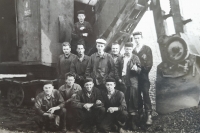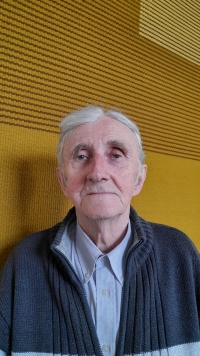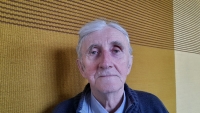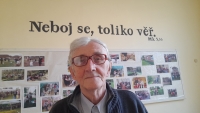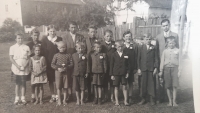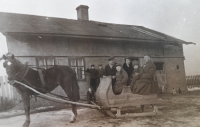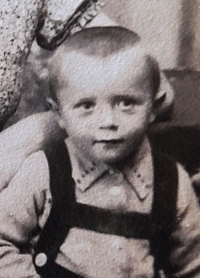I wished to repeat one memory from my childhood. Reunion with father

Download image
Karel Kuc was born on 15 May 1939 in Pożdżenice near Zelów in Poland. His mother Lydie was Czech from the family of Josef Reichert who had come to Poland in the 19th century. Karel´s father Robert Kuc (he wrote his name as Kutz in Poland, later his name was written as Kuc) came from a German family that lived in Zelów. The family was religious, they were Baptists. They only spoke Czech at home. At the beginning of the war, the father convinced the mother to sign the so-called Deutsche Wolksliste (German nationality) in an effort to protect the family. Robert Kuc had to join Wehrmacht in 1942. He was seriously wounded, survived but never came back home. Lucie Kucová and her sons escaped to Czechoslovakia to escape the harsh anti-German repression and settled with other relatives from Poland in the western border region, in Jankovice, where they bought a farm of twenty-two hectares on hire purchase. In the 1950s, the family faced pressure to join the united agricultural cooperative, at last, they gave up their farm and moved to Brniště. Karel could not study because of political reasons. He worked in a flax processing factory from the age of fifteen. Later he worked as an excavator operator and locksmith, he joined the army in Bratislava in 1959. There, he experienced a religious conversion, which led him to study at the Faculty of Theology in Prague, where he prepared for his career as a preacher from 1963 to 1970. He attended the Baptist congregation in Prague Na Topolce. In 1969, he managed to find his father who was living in England and who had been missing for three years and he brought him back with failing health to his family in Czechoslovakia where he died in 1977. Karel Kuc worked as a preacher in Prague, Teplá, Cheb and in the area of Litoměřice. During his career as a preacher, he faced the state supervision to which preachers were subject. He and his wife Růžena got married in 1971 and they raised four children together.
